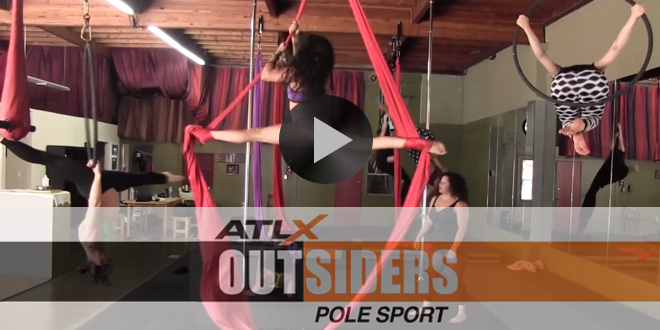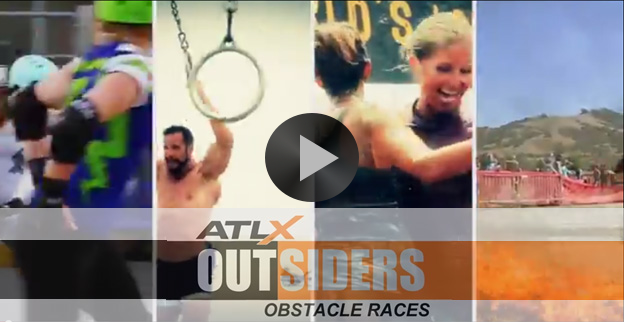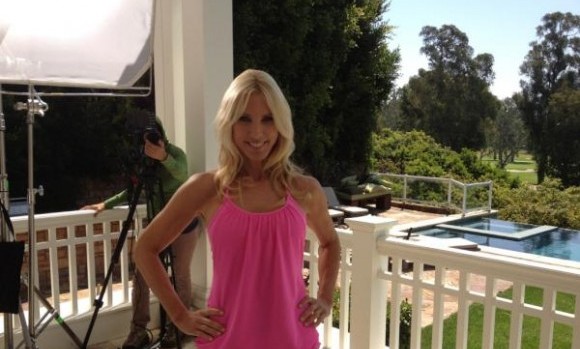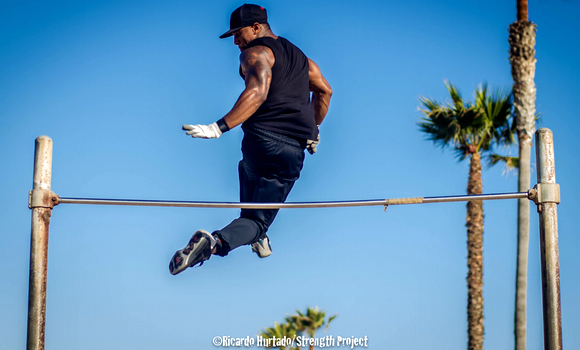By: Sarah McWilliams
Although it should be glaringly obvious, most young athletes and even some of their coaches neglect certain important aspects of their athletic training. They dream to reach the highest level, yet pay little to no attention to their nutrition or fail to take into consideration how important psychology is to training.
Andrea Wieland, co-founder of E1fit and a former Olympian herself, realized at a young age the comprehensiveness becoming an elite athlete requires. To that end, she has developed an all-encompassing program that incorporates every aspect of training and is changing people’s lives. Ultimately, the program gives kids a better opportunity to reach the top level as she did with the U.S. Field Hockey team at the 1996 Olympics (the Games were held in Wieland’s hometown of Atlanta).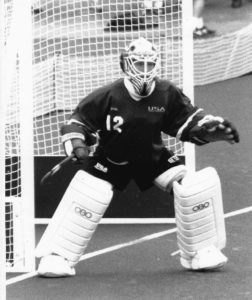
Wieland is a rare breed. During the 1976 Olympics, after watching Nadia Comaneci she decided she wanted to be in the Olympics. Around the same time, she decided she wanted to be a psychologist. While it’s not rare for Olympians to inspire children to want to reach their athletic goals or for a fifth- or sixth-grader to dream of her future career, it is rare for both of those things to happen, exactly as planned.
After excelling in field hockey at the high school level with the help of a talented coach, she was recruited to play goalie for field hockey powerhouse University of Iowa. Still with her sights on the Olympics, Wieland took purposeful steps toward her goal.
“In high school my coach had coached at Duke. She had been at a high level, knew what the Olympic process was, knew what my goals were and started getting me into various competitive camps and into the Olympic development process,” Wieland said. “To me, no one does it alone. You can surround yourself with the best people you can to help you reach your goals.”
That may have been the first inclination to Wieland that there was more to being an elite athlete than just talent and determination. Through her training for the Olympics, it occurred to her just how many aspects contributed  to a major jump in her team’s accomplishments.
to a major jump in her team’s accomplishments.
“In 1994 there was a real shift in our whole approach to our training. We had a team around our team. We had sports nutrition, sports psychology, strength and conditioning [and] tactical and field specialists,” Wieland said. “It jumped us from 11th in the world to third in the world in just six months. When you see the power of that, you think, ‘Well, that’s the way to go.’”
While it’s not feasible for every athlete to have that deep support team, E1Fit provides the next best thing. With the E1Fit program, you get a 4,8 or 12-week program that is comprehensive preparation in pursuit of your goal(s).
And if you have the dedication and determination, the all-encompassing program that goes beyond a basic gym routine can dramatically improve your capabilities. Wieland stated that people are finally understanding the importance of nutrition relative to performance. They are finally realizing how much psychology can positively impact an athlete’s game.
Although people are beginning to understand the importance, there is still a lot of misunderstanding about nutrition and psychology.
“I would not suggest them to be the ball. I don’t know what that means. When people think sports psychology, it’s ‘be the ball’ or visualizations,” Wieland said. “[Sports psychology] affects how you train [and] your nutrition. Are you disciplined about your nutritional choice or are you going to say, ‘Maybe I’ll start tomorrow or next week or Monday is a good day to start?’”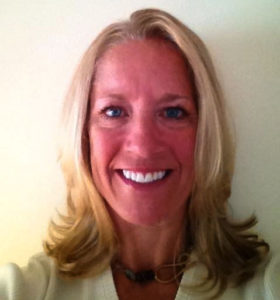
Wieland discussed the E1Fit, and the soon-to-be-launched “Ask and Olympian” tele-coaching program through a one-on-one with The ATLX Channel.
Who can most benefit from these programs?
It’s the person who is really serious about taking it to the next level. They’ve looked at what they’ve done in the past, or they have set a new goal for themselves and they realize that what they’ve done in the past hasn’t really been enough, and there are some elements that are missing.
They could have the sense that part of it is psychology. They need a little bit better nutrition, and they’ve thought about that, or maybe their physical training wasn’t what it needed to be, so they’re willing to have the self-discipline to follow an online plan.
Now all the activities we want you to engage in are going to make a massive difference if you have the discipline to implement them. But they really have to be implemented.
Is this proving to be a program that is showing results?
A couple come to mind. My favorite is that a mother had a 12-year-old tennis player, and they’re from Greece and they found us online, and we had some exchange of emails about whether or not it’s a good fit.
She’s 12 years old and told her mom, “I’ve got to get more fit.” So she really was disciplined about the program and I made sure she got coaching support from me, and would ask her if there was anything going on within the plan, but also if there was anything going on in her performance.
So we talked about how to implement the behaviors and whether or not it made sense, and we really talked about it. Well, she’s number one in Greece now, and she won an under-16-tournament as a 12-year-old.
It was the greatest she ever felt, and the best she had ever performed and she was beating players much older than her. I think that was a big victory. One person at a time.
Are the plans customizable?
That’s a challenge we face. For the price that we have, how much can we tailor it to them? We have a full guidebook on how to customize it to our self. There are variations within the plan. There is check-ins to see how you’re feeling. There is flexibility within the plan. You can also email me as your coach [and I will] offer suggestions and adjustments.
For example, [for] a guy who was having back issues, I suggested all his cardio be done in a pool, and not to do the pounding, and to limit those kinds of things. There is some flexibility built in, but I wouldn’t say that day-by-day-by-day I’m telling them individually what to do. That would be cost-prohibitive for folks.
Where do you see E1Fit headed in the future?
We called it E1Fit for Everyone Fit. We want everyone to be fit. But you’ve got to start narrowing your target markets down. So we’ve chosen three primary ones: high school athletes, those who are interested in competing in the obstacle courses as teams or individuals – they want a tougher type of training plan that you might not always find…mental training in a key component for those. The third group is a first responder. We’re obviously going to continue to work with athletes, but it’s more from a white label standpoint where large soccer clubs could hire us.
Tell me about Ask an Olympian.
I’m super excited about that. It is five free tele-coaching calls that can reach people in the region and nationally. And what’s been amazing is the international participation. There have been an amazing number of international folks that will join us. My guess is they are hungry for this type of information.
You get to ask questions based around sports performance, nutrition, physical training, and mental training, and then I’ll give a brief presentation and then begin going through the questions. There is going to be weekly calls that we are going to record so they’re available for those that the timing didn’t work or they missed that particular call. It’s really just a service for coaches of high school athletes, the athletes themselves and also their parents. But I think we’re going to have more than just high school athletes according to the registration.
For more information on E1Fit, check out www.e1fit.com.
To register for Ask an Olympian, visit http://e1fit.com/askanolympian
 ATLX The only sports entertainment television and digital media network fully devoted to everyday athletes, athletic lifestyle and athletic culture.
ATLX The only sports entertainment television and digital media network fully devoted to everyday athletes, athletic lifestyle and athletic culture.

